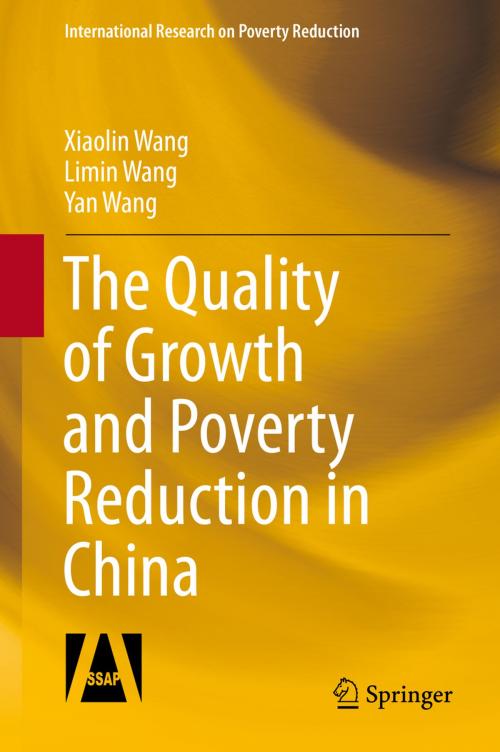The Quality of Growth and Poverty Reduction in China
Business & Finance, Economics, Economic Development, Nonfiction, Social & Cultural Studies, Political Science, Government, Social Policy| Author: | Xiaolin Wang, Limin Wang, Yan Wang | ISBN: | 9783642363467 |
| Publisher: | Springer Berlin Heidelberg | Publication: | May 14, 2014 |
| Imprint: | Springer | Language: | English |
| Author: | Xiaolin Wang, Limin Wang, Yan Wang |
| ISBN: | 9783642363467 |
| Publisher: | Springer Berlin Heidelberg |
| Publication: | May 14, 2014 |
| Imprint: | Springer |
| Language: | English |
The rapid growth over the past three decades has been instrumental in lifting over 600 million people in China out of poverty, and people want to know why and how it happened. International evidence has made it clear that a global economy based on current patterns of consumption and production is simply not sustainable. Policymakers have repeatedly been advised that economic growth, poverty reduction, equity, and environment and resource sustainability must be integrated into national development strategies. What about China? The principle limitation of existing China-focused economic studies lies in its imbalances from the perspective of analysis and the impact of growth on poverty and inequality. A limited number of studies are devoted to structural transformation and China’s structural imbalances, social disparities and the impact of science and technology on growth and productivity. This book addresses the alarming environmental consequences of China’s growth patterns within an overall quality growth framework. It contributes to the economic growth and development literature and current policy discourse on China by expanding the policy analysis to include several important new areas using the most recent data available. This includes analyzing the macroeconomic factors that underlie the need for China to advance its economic transformation; examining how social inequalities, including health, education and gender, have evolved and presenting the scale of environmental problems associated with China’s growth miracle. This report represents the first attempt to integrate the issue of environmental sustainability and climate change into the quality growth context, providing readers with a comprehensive account of China’s success and challenges in its three decades of rapid economic growth.
The rapid growth over the past three decades has been instrumental in lifting over 600 million people in China out of poverty, and people want to know why and how it happened. International evidence has made it clear that a global economy based on current patterns of consumption and production is simply not sustainable. Policymakers have repeatedly been advised that economic growth, poverty reduction, equity, and environment and resource sustainability must be integrated into national development strategies. What about China? The principle limitation of existing China-focused economic studies lies in its imbalances from the perspective of analysis and the impact of growth on poverty and inequality. A limited number of studies are devoted to structural transformation and China’s structural imbalances, social disparities and the impact of science and technology on growth and productivity. This book addresses the alarming environmental consequences of China’s growth patterns within an overall quality growth framework. It contributes to the economic growth and development literature and current policy discourse on China by expanding the policy analysis to include several important new areas using the most recent data available. This includes analyzing the macroeconomic factors that underlie the need for China to advance its economic transformation; examining how social inequalities, including health, education and gender, have evolved and presenting the scale of environmental problems associated with China’s growth miracle. This report represents the first attempt to integrate the issue of environmental sustainability and climate change into the quality growth context, providing readers with a comprehensive account of China’s success and challenges in its three decades of rapid economic growth.















